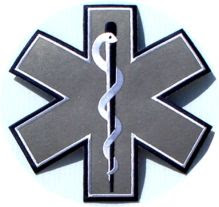We will be breaking up this discussion into several articles. The first is a major issue that comes up each year I think only because it's interesting television. Some people decide to resist common sense and want to stay in the face of an evacuation. People come up with a variety of myths that they use to justify the concept of staying with their home after voluntary and even mandatory notices to evacuate.
Here are a list of the most popular bad reasons to stay in your home when ordered to evacuate:
"I can stay and try to prevent damage from the storm by staying."
Fact: In a Level 1 hurricane force winds of 72 miles per hour, the wind is putting about 1 lb. of pressure per square inch on the side of your house. Think of an average house being 40 foot long (480") and 11 feet tall (132") that's about 63,360 lbs (or 31 tons) of pressure pushing and shoving on the the front of your house for hours. The average man can push back about 200 lbs for a few minutes. Does anyone want to add in the weight of water pounding on the building from rain, flooding or tidal surge? Oh, that's right - you and your small children will be fighting these titanic forces without power for electric tools, pumps or light.
Answer: try to protect your home as best to can before you leave.
- Move low items higher
- Move loose items indoors (meaning anything not bolted into concrete)
- Cover interior items with plastic,
- If possible, cover windows and exterior doors with pre-cut plywood or storm shutters.
- Try to seal doors from leaking if you can.
- Take digital pictures, gather important documents
- Lock your doors and turn on the alarm system.
- Leave with your evacuation supplies and follow the directions of emergency workers
"I am told my home went through a big storm back in 19XX so it should be just fine for whatever storm hits us now."
Fact: Every storm is different. The winds come from different directions. the flood waters are higher or lower. Your building is older and may have dryrot, termites, foundation damage or other maintenance issues that weaken a building. And here's a big one - maybe your house didn't come out OK. After big storms a lot of repair work is done. Many times the contractor or homeowner does the cheapest repair job possible but makes it look as cosmetically nice as they can so that the home is livable and/or ready to sell. It is interesting during remodels or other repair work to discover how often old damage from years gone by is found. The old home owner is not going to disclose all the damage that was done - they want to sell the home for as much as possible. Two or three owners later, it is easy to understand how a myth could develop that while others' homes and/or neighborhoods were damaged or destroyed THIS HOUSE was untouched in the storm/flood, etc. from decades ago. This gives a false sense of security that can fuel the idea to stay.
"As THE MAN, shouldn't I stay and protect my home? That's what I see on TV and movies."
This is an emotional issue for many people. Let me ask the question this way. As the head of the house isn't it your job to protect you family from harm and not gamble your loved ones' lives? Staying in an unsafe area when there are safe areas away from the potential disaster just doesn't make sense.
"What about looting of my home if I am away?"
While people talk about looting, actual looting in disaster areas is quite low. It is also much easier for law enforcement to police an area where they know no one is supposed to be there. It makes it much easier to catch crooks.
"We can always leave if it get's REALLY bad."
This is not a TV movie. If you do stay (over the objection of emergency authorities), it may become too late to leave when you feel you are in danger. Roads can become impassable quickly with downed trees, bridges, mud slides, sink wholes, downed electrical wires, flooding, etc. There is a great possibility that you and/or your family could be killed by the disaster. This is why evacuations are planned - to give people the time they need to get out of harm's way.
If an attempt to rescue you by the fire or rescue dept (past the evacuation deadline) is made, you are putting about 50-100 rescuers lives in danger (Police, Fire, Ambulance, Helicopter crews, utility crew, tow truck operators, swift water rescue team, etc.). The training and equipment involved to rescue you from your house (or car when it gets stuck) may not be available. Many emergency agencies are now choosing to protect the lives of there rescuers and not respond until after the danger has passed. Unfortunately, several rescue workers die each year in a effort to rescue people who could have made a better decision and avoided danger altogether.
Not even Superman can protect a home from a storm by staying in the home. So bottom line- leave when advised on radio or TV before someone has to go door-to door to convince you.
** Next - "What Hurricane supplies you should have.."

